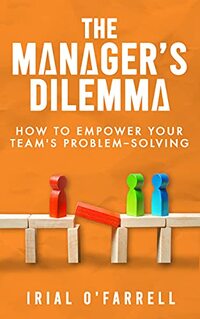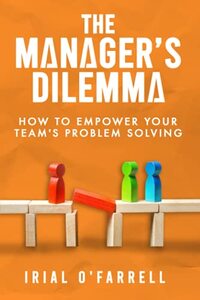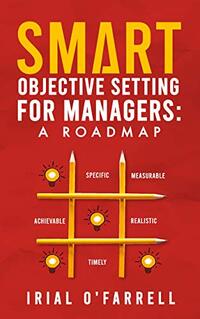Irial OFarrell Interview Published on: 06, May 2021
 What was your dream career when you were a child?
What was your dream career when you were a child?
I'm not sure if I had a dream career, as a child, but I do remember that I thought I'd like to be an accountant. An unusual enough career aspiration for a child. I suspect it came from my brother being an accountant. In university, I studied science but ended up working in Fund Administration, which includes a lot of accounting. So, as it turns out, I sort of did end up in my childhood career idea, for a period of time.
What books do you remember reading during your childhood?I loved Enid Blyton - The Famous Five, St Clares, Mallory Towers. I was less of a Secret Seven fan but would read them, if there was nothing else. I also loved Anne of Green Gables. Visiting Prince Edward Island, in Canada, is a bucket list entry.
How were you first introduced to writing?I don't really remember but school but seem like the obvious answer. I do remember trying to write stories with a friend but I think I gave it up as a bad job. Maybe that's why I stick to the non-fiction. However, I do love words and I love reading phrases that lift a description out of the mundane, even if it is describing the mundane. Over the years, I've done a few creative writing courses and I've really enjoyed them.
What fears did you have while publishing your first book?I feared that people would think it was rubbish, too boring a topic, hard to read.
What challenges did you face while writing your book, Values - Not Just For the office Wall Plaque: How Personal and Company Values Intersect?Once I hit on the idea for the book, it practically wrote itself. However, as I read back through what I had written, there was one chapter that just didn't work well. Each time, I would get to this one chapter and stop. I ended up having to completely restructure the chapter. My next read-through went much smoother and I knew the changes worked.
In what ways do you think your book, "SMART Objective Setting for Managers" will help the managers?I think SMART Objective Setting for Managers will help managers in 3 different ways: firstly, managers will have a better understanding of the real purpose of objective setting and where it sits in the process of managing and running a company, function or team. Secondly, it deconstructs the SMART framework and reconstructs it in a manner suitable to use SMART with another person, while taking the Communication Process into account. Thirdly, it will help managers design behavioural objectives that can really make a difference to how a person delivers their job.
What are the top three "must read" business books?The first book I would recommend is Blue Ocean Strategy. It is a great book that demonstrates an alternative way of looking at strategy and competition. It also connects with my own view of "compete with yourself, not others". Another "must read" book is The Leadership Pipeline. This is a fantastic book on understanding the work of management at different levels within an organisation. It also explains the mind-set shift that needs to happen, to successfully deliver the management work of the level. The third book is Jim Collins' Good to Great. This was a great read and revealed some very interesting insights into what drives superior performance.
Is it right to contract words (you're, isn't, I've, he's, etc.) in formal writing, in a business book for instance?For the most part, I would say no, as business books tend to focus on prose, rather than dialogue. That said, some business book writer styles have become a little more informal or they share the content as a story. Name-Place-Animal-Thing by Lux Narayan is a good example of this style of business book. In these types of books, word contraction may be appropriate. In my next book, The Manager's Dilemma, I use a lot of dialogue, to help make the points, so I'm sure there's quite a bit of word contraction going on!
What strategic advice do you have for someone before he/she begins writing a business book?I would suggest thinking about why you're going it, what you want to get from it and what would make your contribution any different to what's out there already. The angle of all three of my books are quite unique, so it adds to the literature. I'm pulling on 25 years experience, and I've tested out my theories with hundreds of managers. Some specific areas are becoming very saturated.
Why do a lot of business people not read business books?An excellent question and I wonder that myself. Some of it is that a lot of people aren't big readers, so they don't read much of any genre. Some people feel reading business books is like doing work, so they don't want to be doing that at 10o'clock at night. They're also very busy, so finding the time to read a book that isn't for pleasure is difficult. I think that's why audio books have become so popular.
What is the most challenging part about writing business books?I think the most challenging part about writing a business book is making a point but also indicating that "it depends". There are so many variables and different potential scenarios that you can't get absolutely everything covered. So, trying to structure points in a way that can be understood without raising lots of question marks for the reader can be difficult.
What are the significant differences between a leader and a manager?A manager's role is to maintain and manage the status quo while the leader's role is to see what needs to change and create a vision of how the changes can be achieved. Of course, once the changes have been made, they become part of the status quo. So managers need to be able to plan, schedule, monitor, allocate work, develop the team, etc. A leader needs to put their head up, look around and see what's coming down the tracks, and figure out what it means for the team, function or company. The skillsets are quite different. However, the two roles typically sit in the same job. The trick is knowing which role is needed when and to become fluid in moving between both roles.
What is the first step before starting a business?Two types of people start businesses - entrepreneurs and situational-entrepreneurs. An entrepreneur is someone who can build out any business; the "what" of the business isn't too important to them. It's the thrill of building it up that's important. Situational-entrepreneurs are people who "do" something and, for whatever reason, have found themselves setting up a business in what they "do". Examples would be mechanics, doctors, engineers, marketing,training, etc. For these people, they know how to do the "what" of the business. What they don't necessarily know are all the different aspects of running a business. For these people, researching the various different support functions and how they will access the required knowledge and skills would be important. For example, if you're setting up a training company, how will you attract business i.e., how will you set up your sales and marketing? Planning some of those aspects in advance would be very important, because it's not for everyone.
What are your plans for the future as a writer? Are you working on anything new?I am currently working on my third book, The Manager's Dilemma - How to Empower Your Team's Problem Solving. It's based on a phenomenon that I observed, when working with managers. I've tested it and run workshops on it and there have been a lot of "ah-ha" moments. It's based on the idea that managers tend to be naturally very good at sorting out problems/issues (they don't have to be huge issues - just things that need to be resolved) and less skilled in developing other people's problem solving skills. Over time, in many teams, a dynamic arises whereby a lot of issues/problems get escalated to the manager. The manager now has a choice - hence the title "The Manager's Dilemma". I'm aiming for a June 2021 release date. From there, I have several other books that I need to get out of my head and onto paper!
When were you first introduced to AllAuthor and how?I think I originally was sent an email and I had a look at it. I had signed both books up for the free service. I think I was then sent a sample image of my book in a particular situation. I loved it and realised how easy AllAuthor makes marketing for authors. You have great marketing services and I'm really looking forward to featuring my next book too.
Author, change manager, executive coach, Irial OFarrell loves writing. In university, she studied science but ended up working in Fund Administration. She writes business books that provide great insights for the reader. Irial writes in a clear, interesting, and very well-informed way. Her books are a must-read for all leaders and managers.
 The Manager's Dilemma : How to Empower Your Team's Problem-Solving (Performance Development Series)
Genre: Advice & How To, Business
The Manager's Dilemma : How to Empower Your Team's Problem-Solving (Performance Development Series)
Genre: Advice & How To, Business
 The Manager's Dilemma: How to Empower Your Team's Problem-Solving (Performance Development Series)
Genre: Advice & How To, Business
The Manager's Dilemma: How to Empower Your Team's Problem-Solving (Performance Development Series)
Genre: Advice & How To, Business
 Values - Not Just For the office Wall Plaque: How Personal and Company Values Intersect
Genre: Advice & How To, General Nonfiction, Business
Values - Not Just For the office Wall Plaque: How Personal and Company Values Intersect
Genre: Advice & How To, General Nonfiction, Business


